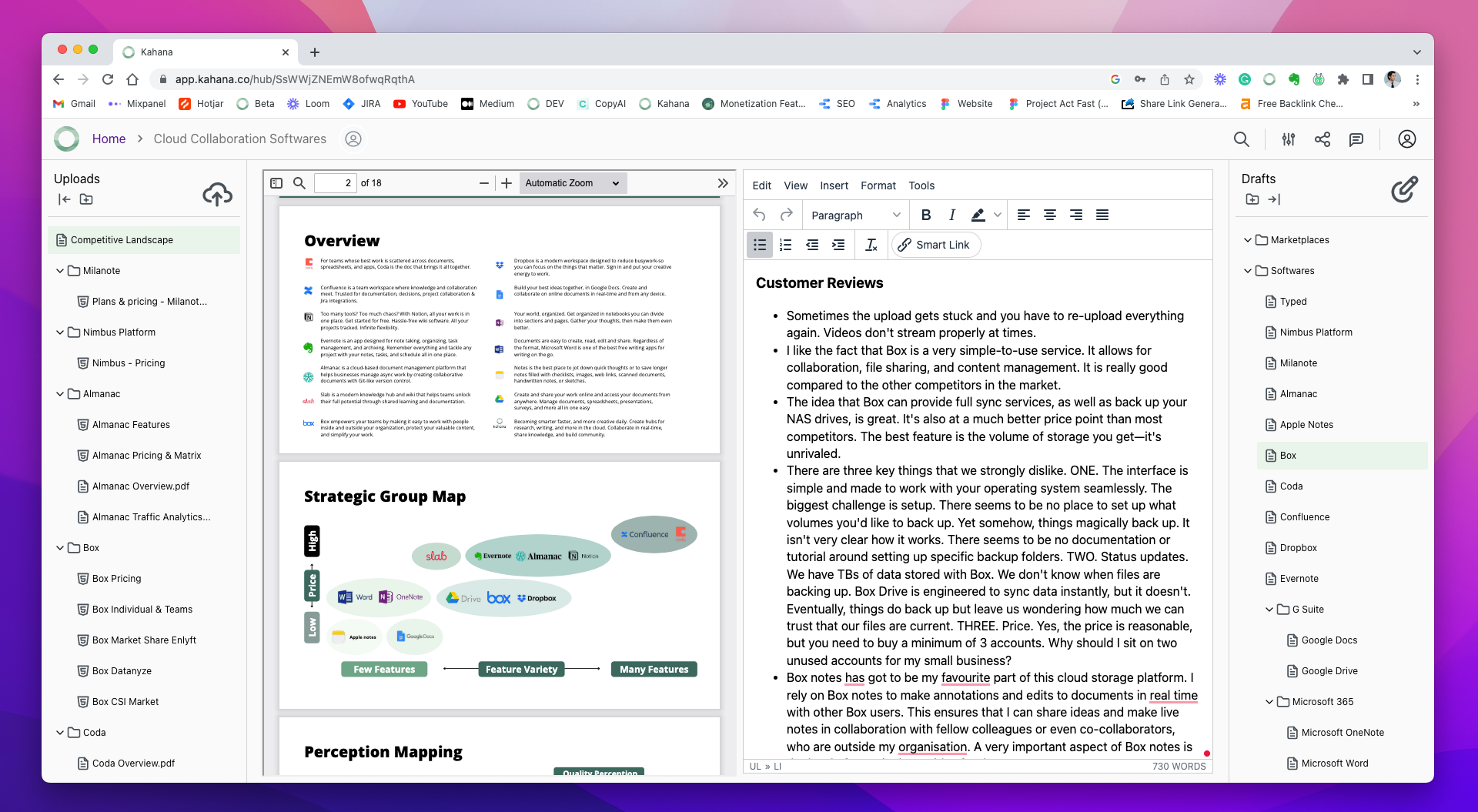Product Testing Market Research: 10 Key Factors [templates]
You've got a new product idea that could be the next big thing. So how can you figure out if it appeals to the minds of customers?
Product testing market research is an excellent way to get feedback from potential customers, especially when businesses are ready to launch a new product.
The best part about product testing is that it will help businesses determine whether their product idea has commercial viability, and if so, what changes need to be made before it goes into production.
This article will cover some tips on how to conduct successful product tests and find out what consumers think of your concepts.
1. Products
If you're a marketer, you know how important it is to have the right product. What does it take to launch a successful product?
You might think that it's all about spotting an idea, running with it, and seeing if people buy it.
Sort of like throwing spaghetti at the wall and hoping something sticks.
That's not quite how it works, though. There's some science behind the art of launching a successful product.
Is it possible to test products before they launch? The answer is yes—and no.
It depends on what kind of product you're talking about.
For many products and services, different types of market research can give you feedback from consumers on whether they would buy it at various price points, what features they would like to see included in the final product, and whether they think this idea will resonate with other consumers like them.
This information can be incredibly helpful, as your business makes decisions about pricing and distribution strategies before the final version of your product launches.
However, with some types of products - like food items or household items - it'll be hard to tell how people will react until after they've been tried by consumers.
For example, if you're selling a new vacuum cleaner, it would be difficult to give feedback on the product unless potential customers first use the vacuum cleaner in their homes and analyze the product.
2. Studies
Many market research companies provide other companies with data on the products they're looking to launch.
They can help businesses determine what their target audiences want when buying products, as well as how much they'd be willing to pay for them.
A lot of work goes into creating a successful product launch, including but not limited to segmentation research, branding market research, testing prototypes, and gathering feedback from consumers.
Market research companies can provide businesses with many options, from different types of surveys for research, market panel research, and focus groups, right through to purchasing intent tests, and the actual product launches.
3. Product Testing
Product testing refers to collecting information from consumers about their perceptions of a new or existing product/service in order to evaluate its performance relative to competitors' offerings within a given market segment.
Product tests are important because they give businesses an idea of how people will react when they use their products or services before they launch them or display them on store shelves where everyone sees them.
Product tests also give businesses ideas about how they might improve upon their existing offerings, as they're able to learn what people like or dislike about them and make changes accordingly.
The success of a product launch is dependent on the market research conducted before the launch.
Market research companies can help businesses determine whether their product idea has potential and whether they've correctly identified their target market.
4. Audience
Potential customers are those who look into a product and want to know what they're buying before they commit to a purchase.
Most customers are also looking for the best price possible.
When you're marketing your business, it is important not to market to a general, broad audience as this won't yield the best results.
Your marketing efforts might not capture the attention of people who truly need your product, and will only be ignored by a large audience.
Therefore, you need a target audience, a smaller group of people that are most likely to buy your product or service.
You should consider leveraging audience research tools to clearly segment and define your audience.
5. Target Audience
The first step of good market research is figuring out who the target audience is.
Who is it that you want to sell the product to?
What kind of person is most likely to buy it?
A good way to determine that is to focus on people who are already familiar with the category and see if their feedback alerts you to any needed product changes.
Target audience refers to the group of people who will potentially purchase a business's product/service once it launches (i.e., they have an interest in buying).
Ideally, these people are located within a specific geographic region (such as their local community) but also may include potential consumers from across state lines or even internationally (depending on what type of product/service is being marketed).
Once you've identified your target consumers, it's time to get into the nitty-gritty testing!
It takes more than just one person saying "yes" or "no" when asked if they'd buy something—you need feedback from as many people as possible before making any final decisions about whether this new product launch is going to work out for everyone involved (including yourself).

Claim My Free Audience Research Template
This hub is ready-made and pre-populated with files, checklist items, free tools, and examples to help you improve your audience research.
6. Successful Products
It's also important to find out what makes successful products in this category before developing yours so that you know what works and doesn't work for your target market.
This can help save time and money when developing a new product line if there's already one out there that's doing well in sales numbers or reviews online by consumers who bought it!
7. Consumers
You want to get feedback from consumers about how they feel about your product before you decide whether it's ready for release into the market. Once you've gotten feedback from all your potential customers, you'll know whether this product has what it takes to succeed in this competitive industry!
8. Customers
There's no better way to find out what your potential customers want than by asking them directly. You can do this by conducting product tests or surveys in your target market.
By testing your product or idea on potential customers, you can determine whether it will be successful before you launch it in the marketplace.
You'll also learn valuable information about how well your product or service meets the needs of consumers, and where there is room for improvement.
Purchase intent, or buyer intent, describes the likelihood of a customer buying a product.
There are 4 stages of purchase intent: awareness, interest, desire, and action.
- Awareness: A customer becomes aware of their need to purchase a new product.
- Interest: The customer searches for information by researching various products and services.
- Desire: Once the customer has done enough research, they can evaluate the products available to them and choose which one will fit their needs most closely.
- Action: The customer buys the product.
And don't forget about customer loyalty research!
9. Design
A market research company can help businesses design their survey and collect the data from participants so that they can get more accurate results.
You can hire someone to do your market research for you— such as an internal employee who has experience with research.
If you choose this option, we recommend doing extensive background research on your potential partner before committing any resources; this will help ensure that the person(s) working on your behalf has the skill set required for success.
You can also conduct your own market research.
If this is something that interests you, we recommend taking some time to learn about how the process works before jumping in headfirst.
You'll want to make sure that you have the tools and resources needed for success (including budgets), as well as access to high-quality data from reliable sources.
10. Industry
In the marketing industry, the product testing market has changed dramatically.
In fact, there are now more options than ever before when it comes to launching a new product or service.
Product testing is an important part of the product development process. It helps get a feel for how consumers will interact with a product and what they like or dislike about it so that the company can make changes before it launches the product.
If you want to start your new business on the right foot, market research and product testing are the way to go. There's no shame in asking for help; a market research company can provide you with the best tools to help your business succeed!

Talk with a Kahana representative
Fill out your information and a Kahana team representative will reach out to you. Have a simple question? Search our library of articles
